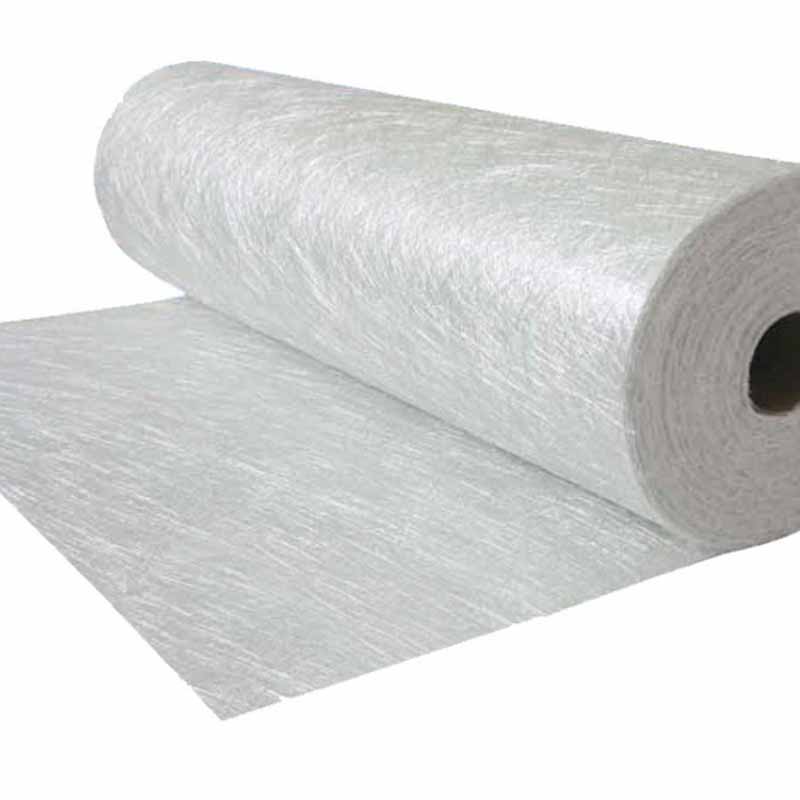Introduction:

Fiberglass is a highly versatile and widely used material in various industries. Its manufacturing process, known as pultrusion, involves melting minerals such as silica sand, limestone, and clay to create glass fibers. These fibers are then bundled together, coated with a chemical solution, and used to manufacture different types of fiberglass products. One such product is Chopped Strand Mat (CSM), which is composed of randomly laid chopped strands of glass fiber held together by a binder or stitching. In this blog, we will explore the benefits and applications of fiberglass powder chopped strand mat and its superiority in various reinforcement techniques.
Understanding Chopped Strand Mat:
Chopped Strand Mat (CSM) is a versatile material designed to cover a wide range of layup techniques. Its randomly laid chopped strands allow for easy conformity to molds, while its fast wet out properties ensure an efficient manufacturing process. The mat is available in various thicknesses and weights, making it suitable for multiple applications.
Benefits of Chopped Strand Mat:
1. Excellent Reinforcement: Chopped Strand Mat provides excellent reinforcement properties to composites due to the random arrangement of fibers. This random orientation helps distribute stress evenly across the material, improving its overall strength and durability.
2. Versatile in Layup Techniques: CSM can be easily used in different layup techniques, including pultrusion, filament winding, and gun roving. Its flexibility allows for seamless incorporation into various manufacturing processes.
3. Superior Wet Out Properties: Thanks to its fast wet out properties, Chopped Strand Mat ensures efficient resin impregnation during the composite manufacturing process. This characteristic saves time and reduces the chances of resin-rich or dry areas in the final product.
4. Chemical and Mechanical Binding: Chopped Strand Mat can be chemically or mechanically bound. Chemical binders such as Emulsion and Powder ensure excellent compatibility with most resin systems. Emulsion binders are particularly suitable for polyester resin, while Powder binders are ideal for epoxy resin applications.
Applications of Chopped Strand Mat:
1. Automotive Industry: Chopped Strand Mat is widely used in the automotive industry for parts such as interior trim, hoods, bumpers, and fenders. It provides the necessary strength, impact resistance, and dimensional stability required in these applications.
2. Marine Industry: Fiberglass CSM is commonly used in boat building and repair due to its excellent water and corrosion resistance. It helps create strong and lightweight hulls, decks, and other structural elements.
3. Construction Sector: Chopped Strand Mat finds applications in the construction sector for manufacturing pipes, tanks, and other infrastructure elements. It adds strength and durability to these structures, making them suitable for demanding environments.
4. Wind Energy: Chopped Strand Mat plays a vital role in the production of wind turbine blades. Its reinforcement properties contribute to the overall strength, stiffness, and longevity of these blades, ensuring efficient energy generation.
Conclusion:
Fiberglass powder chopped strand mat (CSM) is a highly versatile and superior reinforcement material due to its excellent wet out properties, easy conformity to molds, and random fiber arrangement. It finds applications across various industries, including automotive, marine, construction, and renewable energy. The chemical and mechanical binding options make it compatible with different resin systems, enhancing its versatility further. With its numerous benefits, it is no surprise that fiberglass powder chopped strand mat is a preferred choice for reinforcing composites in diverse applications.
Keywords: Fiberglass Powder Chopped Strand Mat, reinforcement, pultrusion, filament winding, layup techniques, random orientation, wet out properties, chemical binding, mechanical binding, automotive industry, marine industry, construction sector, wind energy.
